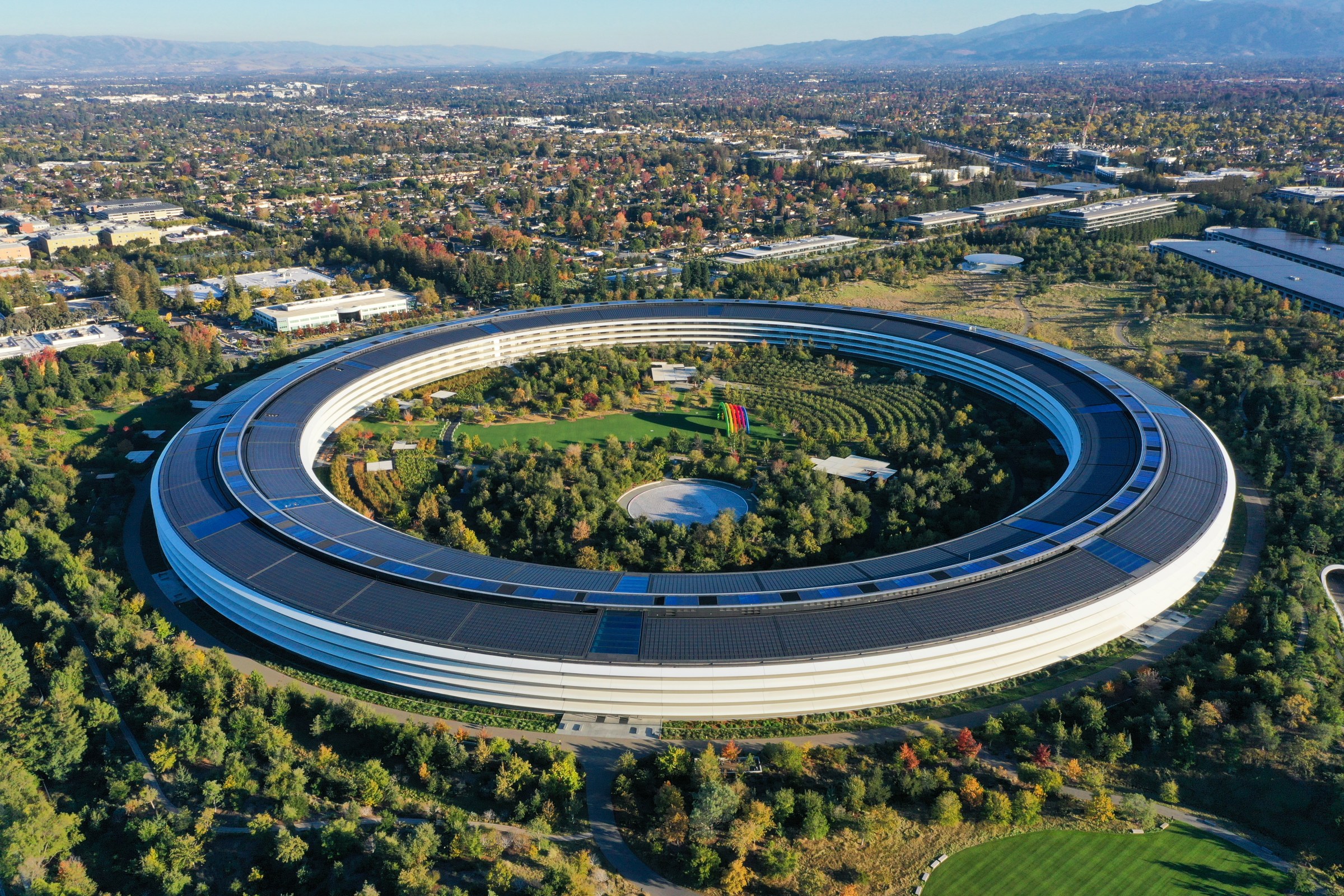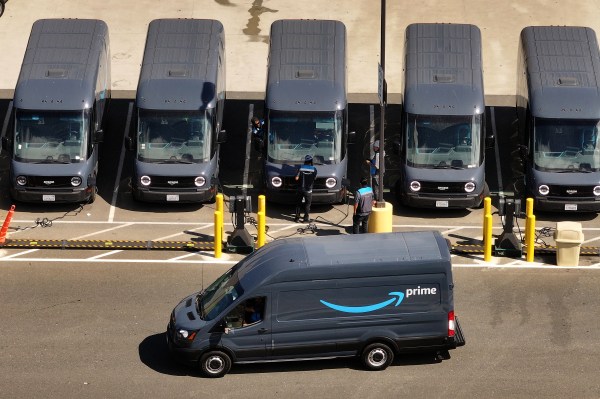Turn any article into a podcast. Upgrade now to start listening.
Premium Members can share articles with friends & family to bypass the paywall.
The U.S. dominates the world’s list of the most valuable companies. Indeed, of the top 20 publicly traded companies today by market cap, 17 are American. This reality—derived partly from policy and partly from lucky historical circumstances—is an economic boon for our country, improving the lives of Americans across the socioeconomic spectrum. To protect and expand this advantage, policymakers should seek to curb regulations hostile to global business.
That more valuable companies are founded and grown in the U.S. than in other countries is no surprise; the U.S. is the world’s richest large country, and its largest rich country. That said, the share of the world’s greatest companies that call the United States home is disproportionate, even accounting for its size and wealth. Understanding why this is the case is crucial to ensuring that it remains so.
Consider Uber, for example. Why was the ride-hailing giant—with a market cap of $207.6 billion—founded in the U.S.? One simple reason is that, because American investors are unusually willing to risk money on far-out, speculative, moonshot business plans, disruptive ideas like ride-hailing are able to secure funding at an earlier stage of an industry’s development in the U.S. than elsewhere. The United States, with all its wealth, is such a valuable consumer market that even a small chance of breaking into it is worth investing in. Uber was able to raise $1.25 million in venture capital in 2010, when most people, even in rich countries, did not yet have smartphones. Investors in other countries often do not fund an enterprise until it has already presented a proof of concept in the U.S., and Uber, therefore, gained a several-year head start on international competitors like the Chinese company Didi Chuxing or Dubai-based Careem.
A businessperson who understands this dynamic is going to lean into it. Non-Americans with innovative ideas, therefore, often find a U.S.-based business partner to help them bring the product to market. South Africa native Elon Musk, for example, relied on this model to begin his career, collaborating with American partners such as Peter Thiel to develop the business that became PayPal. The current most valuable U.S. company, Nvidia, was founded by Taiwan-born Jensen Huang, along with two American engineers. The immigrant entrepreneur has a long and storied history in the United States.
Even when an innovative and commercially valuable product doesn’t originate in the United States, it often finds its way there eventually. Finland, for example, is the birthplace of Linus Torvalds, the creator of the Linux operating system kernel, as well as hockey legends like Teemu Selänne and Teppo Numminen. But all three of them made their way to America as their respective careers developed, drawn here by the sheer size of the U.S. market and its resulting dominance in computing and pro-level hockey. Today, many of the most valuable businesses in both Linux software and hockey—from the Android operating system and open-source enterprise software company Red Hat to the Chicago Blackhawks and Boston Bruins, two of the NHL’s most valuable franchises—find themselves in the U.S.
This phenomenon isn’t entirely attributable to American laws and regulations. In a vacuum, perhaps, many businesses would be partial to policy choices made by Estonia, Finland’s southern neighbor, which boasts the world’s most competitive tax code. But the U.S. hoovers up Estonian business opportunities as well. Skype, for example, was created by a handful of superstar Estonian software engineers in 2003, but the early video conferencing software was quickly acquired by a series of U.S. investors, eventually landing in the hands of Microsoft and being integrated over time into the collaboration platform Microsoft Teams. Today, all major global video conferencing platforms are run by U.S.-based companies, and one of the original Estonian Skype entrepreneurs, Ahti Heinla, is building an autonomous delivery robot company called Starship. It’s headquartered in San Francisco.
One way or another, valuable business tends to end up in the United States. Is this all to our credit as Americans? Partly. Perhaps some of our cultural values—like our relatively positive attitude towards business ambition—play a role here. Our education and immigration systems have given us access to talent, including the particularly exceptional foreign-born individuals mentioned above. And of course, our successful record of stable constitutional government and self defense since the Civil War puts us ahead of most of even the developed world. Ultimately, the U.S. is unique enough on the global stage that it is difficult to know which of these institutional underpinnings have made the greatest difference in fostering business growth.
Some of the success can be attributed to luck, too. We are lucky to be a populous country. And we are lucky that our native tongue became the world’s dominant language, largely due to 19th-century British dominance that was unrelated to American policy choices.
But the overall effort, values, and institutions required to become a rich country in the first place are not to be taken for granted. To do that at a continent-wide scale is even more impressive. The U.S. is effectively the world’s largest free trade zone. Constitutional protections like the dormant commerce clause help curb incentives for states to pass laws discriminating against each others’ businesses.
Alongside a legal system that protects intellectual property, America has developed sophisticated financial markets that can give businesses the funding they need to pursue ambitious goals at all stages of development, from seed rounds to initial public offerings to mergers. An elaborate infrastructure of early-venture funds and startup incubators in Northern California provides capital for new ideas quickly. Investment bankers in New York might help prepare businesses to go public and draw investment from retail shareholders, or help a smaller company with a good product get acquired by a larger one with a great distribution network to vastly scale up its reach. Our willingness to be home to these financial institutions is an important ingredient for success.
From a policy perspective, the U.S. should be sure not to squander its advantages. For example, if President Donald Trump’s new plan to make H-1B visas more expensive or other immigration restrictions make working in America difficult even for talented entrepreneurs, our nation could lose its ability to attract skilled immigrants. Continuing to view trade as beneficial is also important; leaving some work to other countries is critical to our specialization in more remunerative areas. Some of our advantages come from trading high-value corporate services–such as the streaming rights to professional sports–for imports of lower-value goods, but the administration’s attitude towards low-value goods imports is misguided. And some of our advantage comes from allowing our corporations to spread globally. To fear global expansion, or seek to punish it, as GOP Sen. Bernie Moreno of Ohio does in recently introduced legislation that would penalize outsourcing, is the wrong idea. When the U.S. wins in global business, it needs to hire workers abroad, people whose skills and roles are complementary to U.S.-based roles.
The reality is that the U.S. is uniquely suited to nurture growing companies, and the globalization of companies like Apple, Microsoft, and Alphabet has made the U.S. the winner in the global economy.






Please note that we at The Dispatch hold ourselves, our work, and our commenters to a higher standard than other places on the internet. We welcome comments that foster genuine debate or discussion—including comments critical of us or our work—but responses that include ad hominem attacks on fellow Dispatch members or are intended to stoke fear and anger may be moderated.
With your membership, you only have the ability to comment on The Morning Dispatch articles. Consider upgrading to join the conversation everywhere.